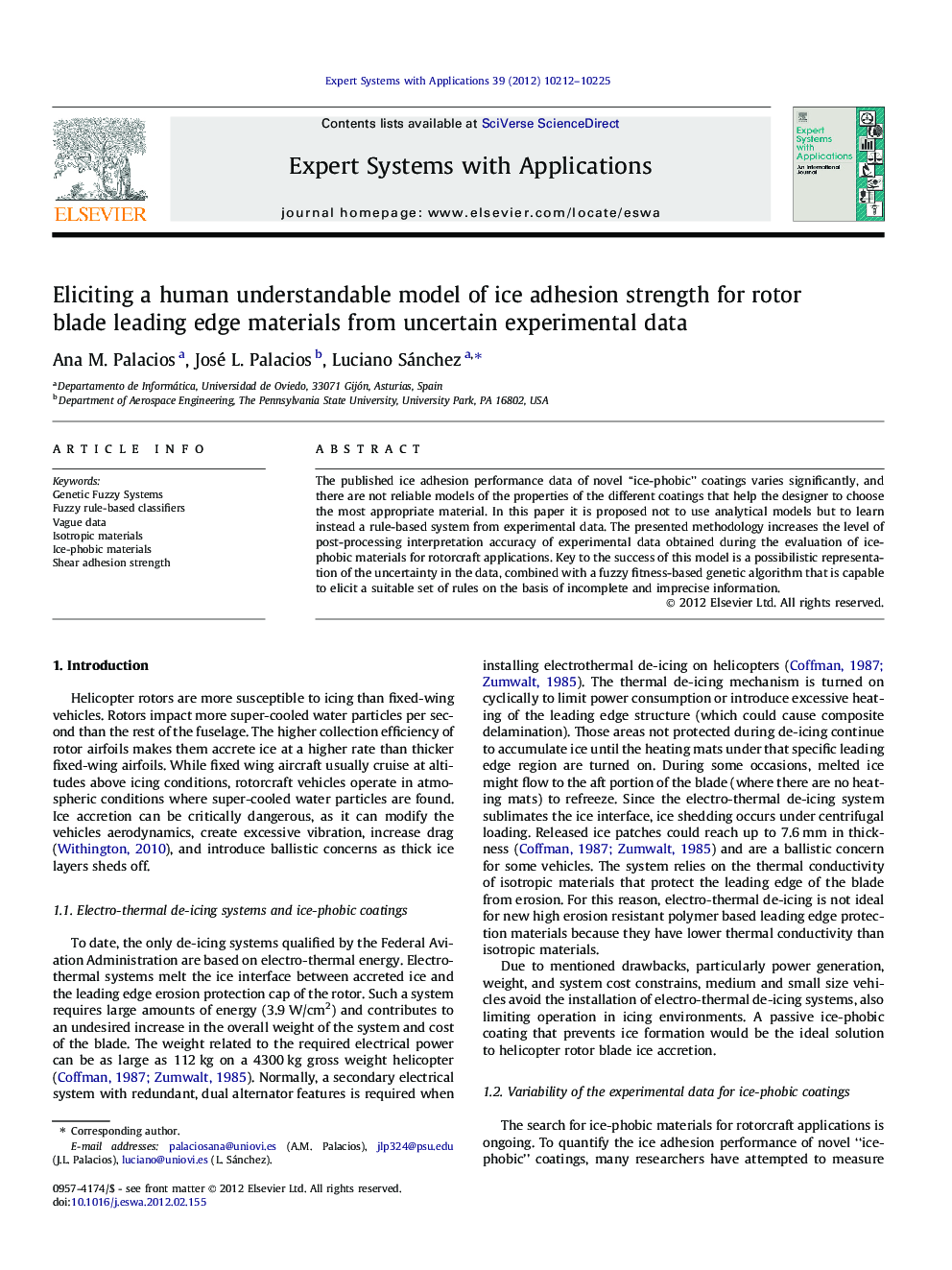| Article ID | Journal | Published Year | Pages | File Type |
|---|---|---|---|---|
| 383681 | Expert Systems with Applications | 2012 | 14 Pages |
The published ice adhesion performance data of novel “ice-phobic” coatings varies significantly, and there are not reliable models of the properties of the different coatings that help the designer to choose the most appropriate material. In this paper it is proposed not to use analytical models but to learn instead a rule-based system from experimental data. The presented methodology increases the level of post-processing interpretation accuracy of experimental data obtained during the evaluation of ice-phobic materials for rotorcraft applications. Key to the success of this model is a possibilistic representation of the uncertainty in the data, combined with a fuzzy fitness-based genetic algorithm that is capable to elicit a suitable set of rules on the basis of incomplete and imprecise information.
► Analysis of the causes of inconsistent ice accretion strength data in the literature. ► Improved evaluation of ice-phobic materials for rotorcraft applications. ► Increased post-processing interpretation accuracy of experimental data. ► New modeling methodology based on a possibilistic representation of uncertainty.
